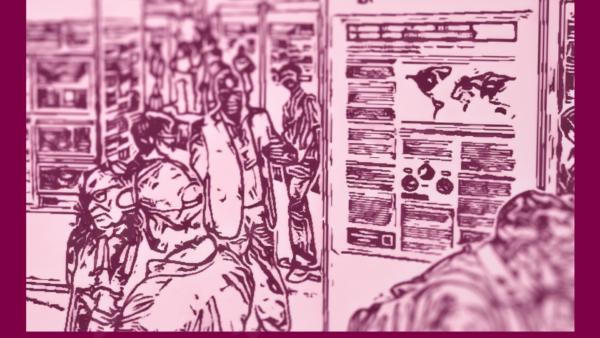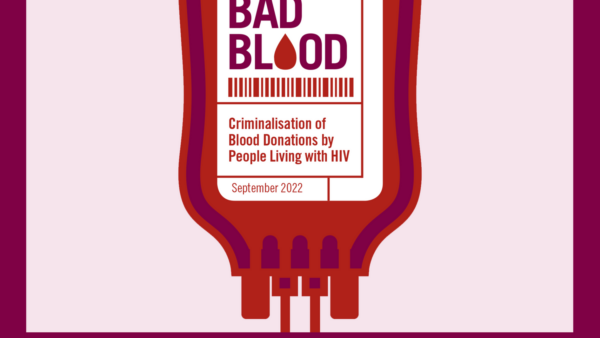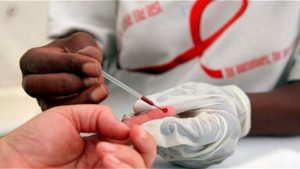Overview
Colombian law contains both HIV-specific and general provisions which can criminalise people living with HIV.
The Penal Code formerly contained a provision, Article 370, which specifically prohibited those who knew they are HIV-positive from carrying out practices through which they could transmit the virus to another person, including donating blood, semen or organs. The offence carried a sentence of six to twelve years’ imprisonment. Following a challenge brought by an individual with backing from universities, legal clinics and other organisations, the Colombian Constitutional Court declared Article 370 unconstitutional in June 2019, and it has since been repealed.
Nevertheless, other Colombian laws are relevant to the criminalisation of people living with HIV. Article 368 criminalises the violation of sanitary measures adopted by authorities to prevent the introduction or spread of an epidemic, while Article 369 criminalises those who ‘spread an epidemic’. These provisions are punishable by imprisonment of one to three years, and one to five years, respectively.
In addition to the Penal Code, Decree 1543 of June 12, 1997 introduced a number of measures which specifically regulate those living with HIV. Article 36 of the decree imposes a duty on those who are aware that they have HIV to inform their sexual partner and any health workers who are treating them. Article 41 prohibits a person living with HIV from making a blood donation, or donating semen or organs, or performing any activities which carry a risk of infecting others (see our report, Bad Blood, for a global analysis of the criminalisation of blood donations). Article 56 sets out the sanctions for failure to comply with this decree, which include fines.
In a 2021 review article, Decriminalizing HIV in Colombia by Garcia Ruiz J, et al, it was noted that: “according to data from the Attorney General’s Office of Colombia, 218 criminal investigations were opened amid (sic) 2010 and 2019 based on charges related to HIV and Hepatitis B Transmission (“HHT”), and eight people were convicted (6 males, one female, one with no gender record) for acts that took place between 2011 and 2017 (Fiscalía General de la Nación, 2021). By March 2021, three people were serving a sentence for HHT, two in prison and another in house arrest, according to the Colombian National Penitentiary and Prison Institute (Instituto Nacional Penitenciario y Carcelario – INPEC, 2021).” The article was unable to disagregate how many of these cases related to HIV and how many to hepatitis B, but suggests that the number of cases available in the public domain are subject to severe under-reporting.
We have accessed reports of six cases of HIV criminalisation in Colombia. The first prosecution occurred in 1993, while the remainder have occurred since 2014.
The first known case of HIV criminalisation in Colombia related to blood donations. In this case, reported in 2023, a cluster of cases of HIV transmission stemming from blood transfusions were discovered following the death of a baby who had contracted HIV after receiving a blood transfusion. Following police investigation, it was determined that a single laboratory/blood bank was the source of thirteen cases of HIV transmission due to a failure to test donated blood, several of which resulted in death. After examining donor records, investigators identified a 43-year-old man who had allegedly knowingly been living with HIV since 1989 but who had donated blood in exchange for monetary payment several times. Following prosecution in the High Court, both the donor and the owner of the laboratory were sentenced to 11 and a half years’ imprisonment for the offences of spreading an epidemic (Article 369) and manslaughter.
The first case to result in a charge under Article 370 came in 2014. In this case a man was charged and accepted responsibility for transmitting HIV to three women in prison. The man had been aware that he was HIV-positive since 2009.
In 2015 a man was given a suspended sentence of three years and four months’ imprisonment for transmitting HIV under Article 370. The defendant accepted the charge that he had transmitted the virus to his wife, and the court also requested an investigation to determine whether he had caused another person to become infected.
In 2017 it was reported that a police officer had been found guilty under Article 370 for transmitting HIV. The man was arrested in 2013 and had allegedly known he was HIV-positive since 2009 but had not disclosed his status to his sexual partners, leading to transmission to at least two women.
In 2019 a man who was in jail after being arrested was charged with assault after allegedly biting one police officer and spitting on another. As the man was suspected of living with HIV, the police officers had to undertake tests to determine if the virus had been transmitted to them, but the results came back negative.
More recently, in 2024, a man was charged with a sexual assault offence and HIV transmission after allegedly raping an ex-partner. The partner did test positive for HIV following the incident. It is not clear exactly what provisions the man was charged under.
Laws
Penal Code of Colombia: Law 599 July 24, 2000 (Reformed - Unofficial translation)
Book II – Special Part – Title XIII – Chapter I – Of Crimes against Public Health
Article 368. Violation of sanitary measures. The one who violates sanitary measures adopted by the competent authority to prevent the introduction or spread of an epidemic, will incur in prison from one (1) to three (3) years.
Article 369. Propagation of epidemic. He who spreads epidemic, will incur prison of one (1) to five (5) years.
Penal Code of Colombia: Law 599 July 24, 2000 (Reformed - Unofficial translation)
Book II – Special Part – Title XIII – Chapter I – Of Crimes against Public Health
Article 370 (repealed, June 2019). Propagation of the human immunodeficiency virus or hepatitis B. Those who, after being informed of being infected by the human immunodeficiency virus (HIV) or hepatitis B, carry out practices through which they can contaminate another person, or donate blood, semen, organs or in general anatomical components, will incur in prison from six (6) to twelve (12) years.
Decree 1543 of June 12, 1997
Article 36. Duty to inform
In order to ensure proper treatment and avoid spread of the epidemic, the person infected with the human immunodeficiency virus, HIV, or who has developed acquired immunodeficiency syndrome, AIDS and know such situation is obliged to report this event, to your sexual partner and to the attending physician or to the health team to which you request assistance.
Article 41. Duty not to infect
The person informed of their status as a carrier of the Human immunodeficiency virus, HIV, should refrain from donating blood, semen, organs or in general any anatomical component, as well as performing activities that carry a risk of infecting other people.
Article 55. Propagation of the epidemic
Persons who fail to comply with the duties enshrined in articles 36 and 41 of chapter V of this decree may be denounced so that the possible existence of crimes by epidemic spread, violation of sanitary measures and those indicated in the Penal Code may be investigated.
Article 56. Sanctions
Failure to comply with the provisions of this decree by public institutions, private or natural or legal persons, will result in the application of the sanctions established in Law 10 of 1990, which will be imposed by the health authorities in the exercise of the inspection and surveillance functions, according to the severity of the fault, as follows:
a) Fines in the amount of up to 200 legal minimum monthly salaries;
b) Intervention of the administrative and / or technical management of the entities that provide health services for up to six (6) months;
c) Suspension or definitive loss of legal status of private persons providing health services, and
d) Suspension or loss of authorization for the provision of health services.
Further resources
English: The decision of the Constitutional Court of Colombia to eliminate section 370 of the criminal code that criminalised the transmission of HIV.
Español: La decisión de la Corte Constitucional de Colombia de eliminar la sección del código penal que penaliza la transmisión del VIH.
The brief presented to the Constitutional Court arguing that the statute should disappear for three fundamental reasons: because it was inappropriate, unnecessary and disproportionate.
El escrito presentado a la Corte Constitucional sostenía que la norma debía desaparecer por tres razones fundamentales: porque era inadecuada, innecesaria y desproporcionada.
A detailed review examining how the Colombian Constitutional Court decided a case which challenged the criminal offence that penalized HIV and Hepatitis B Transmission. With the support of multiple evidence-based and human rights arguments from the civil organizations and the academia, the Court ruled in favour of eliminating the HIV and Hepatitis B transmission offense from the criminal code, recognizing that people diagnosed with HIV have been subject to stigmatization and discrimination. The high court also condemned the criminalization of HIV as it discouraged people from accessing to diagnostic tests, especially in high-risk groups already disproportionately profiled by the justice system.
Acknowledgements
Our thanks to Australian law firm Hall & Wilcox for their research assistance to confirm current relevant legislation.
HIV Justice Network's Positive Destinations
Visit the Colombia page on Positive Destinations for information on regulations that restrict entry, stay, and residency based on HIV-positive status, as well as access to HIV treatment for non-nationals.









